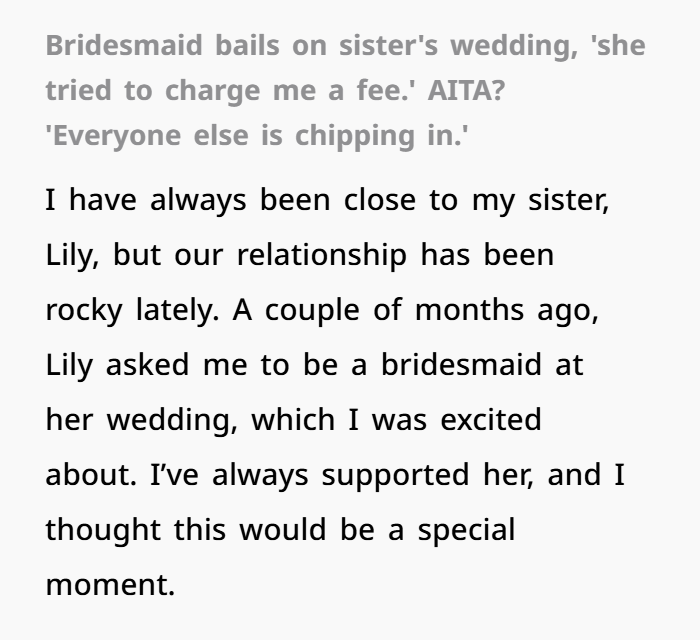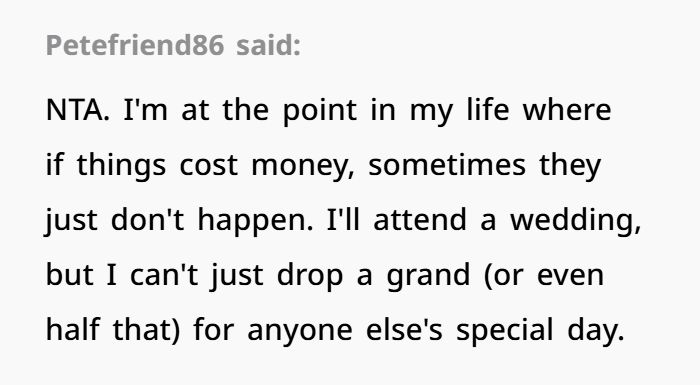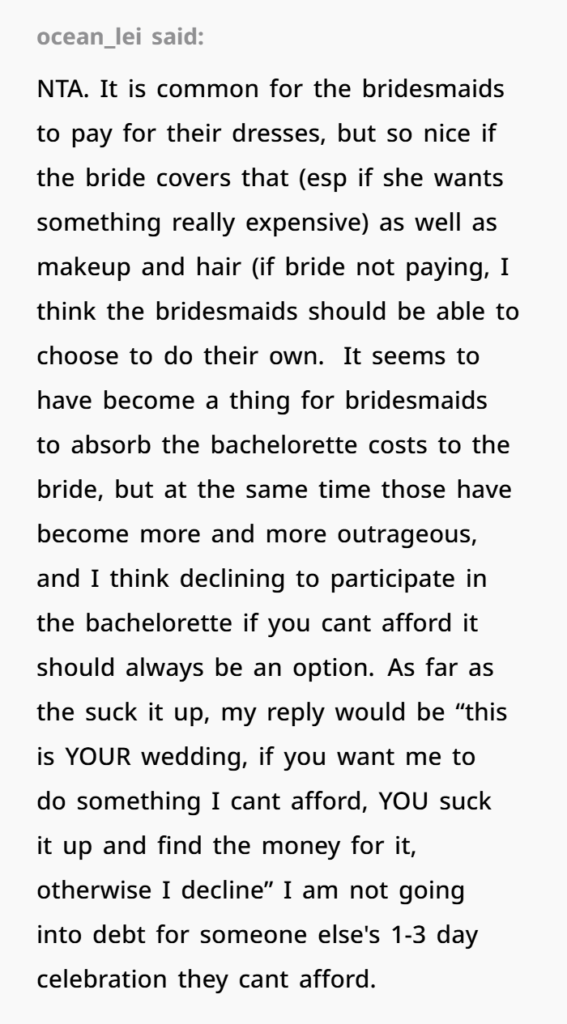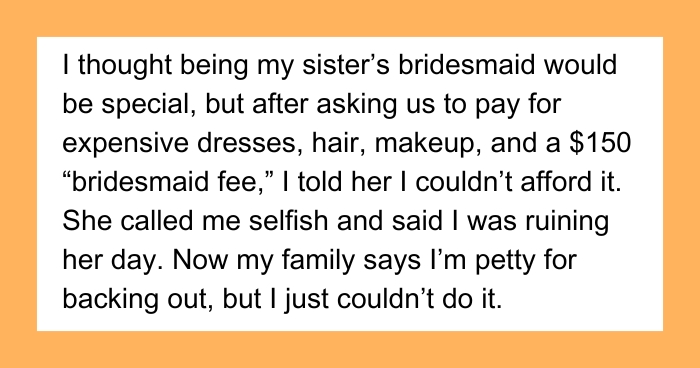AITA for refusing to attend my sister’s wedding after she tried to charge me for being a bridesmaid
Reddit user OP is in a bit of a pickle because of her sister, Lily, and the wedding plans that come with it. Initially, OP was on board with buying Lily a bridesmaid dress from a $300 store, but things went south when Lily charged her an additional $150 “bridesmaid fee” to cover other elements of the event as well as a personal styling fee. When OP told Lily that this fee was too much for her and felt like a scam, all of the sudden she was the bad guy for being selfish and not supporting her, a message which OP said was incredibly invalidating. OP left a comment to explain how she really felt priced out of their wedding and how she didn’t feel respected either and that made her “bow out from the bridal party as well as the wedding.” After that, OP has been getting tons of messages from the family, telling her to suck it up, saying that she is petty etc.
It lays at the true essence of the argument: are Lily’s demands for bridesmaids to cover costs far too out there of a normal wedding? Now OP is second guessing herself about whether she’s the true bad guy for standing her ground and not going to the wedding at all or is it justifiable to refuse to pay for another person’s “special day.”
Read for more info Reddit









Are bridesmaid fees a real thing?
Generally speaking, bridesmaids are often expected to cover certain personal costs, such as dresses, shoes, and sometimes hair and makeup. According to The Knot’s 2023 Bridesmaid Survey, the average cost of being a bridesmaid in the U.S. is around $1,200, once all expenses are totaled (including travel, attire, and pre-wedding events). However, a mandatory flat “bridesmaid fee” is highly unusual and not part of standard etiquette. Traditionally, costs for the bachelorette party or decorations are shared voluntarily or are covered by the maid of honor and bridal party as a collective gesture—not imposed as a fee.
In fact, Emily Post’s wedding etiquette guidelines suggest that it’s inappropriate to demand contributions beyond what’s traditionally understood, and clear communication about costs should happen well in advance. Surprising someone with extra fees after they’ve already agreed to participate is, at best, inconsiderate and, at worst, exploitative. So, OP’s shock and discomfort are absolutely valid and align with common social norms around weddings.
Legal and social precedents:
While there are no legal frameworks governing the costs of being a bridesmaid, small claims courts have seen cases involving bridal party disputes—especially where contracts are implied but not honored. For example, in Rodriguez v. Martinez (2016), a former bridesmaid successfully sued to recover costs for a canceled destination wedding where expenses spiraled beyond agreed-upon amounts. While OP’s situation may not rise to legal action, it reflects a growing tension in modern weddings where the financial burden on participants has been criticized as excessive.
Family dynamics and pressure:
It’s also important to consider the social pressure that can emerge within families during wedding planning. Research from Psychology Today highlights how weddings often intensify family expectations, leading to guilt-tripping, boundary-pushing, and emotional manipulation. OP’s family’s reaction—calling her “petty” and insisting she “suck it up”—follows this predictable pattern. It’s common for individuals to be labeled as “difficult” when they assert financial or personal boundaries in high-stakes family events, especially when the narrative of the “perfect day” is at risk.
Here’s what top commenters had to say about this one:







The bridesmaid role and attending the wedding are indeed two different things, and OP is doing the right thing by putting down a reasonable boundary when it comes to evermore unreasonable and outrageous financial expectation. Weddings are charged with emotion, but that should not translate into ruining them financially, or their personal well-being in the process. OP may draw some pain from Lily and the family, but it’s not specifically because she did the wrong thing but because there were wilted expectations on her. OP distancing herself was the healthiest and most reasonable thing to do, as she is needing to set boundaries on her time spent at family functions, and she can dictate how she chooses to breathe life into those settings.

